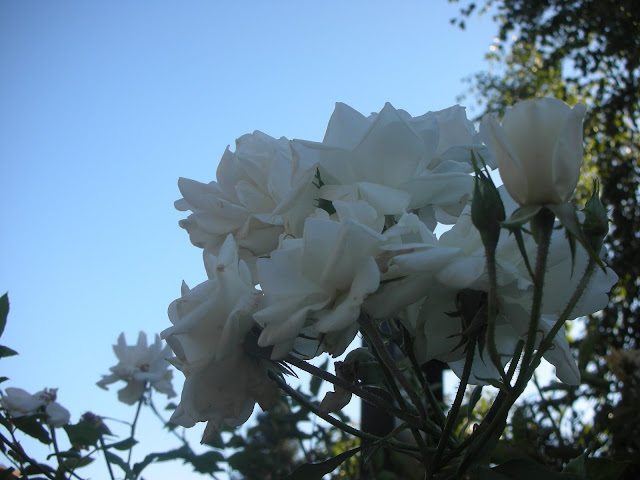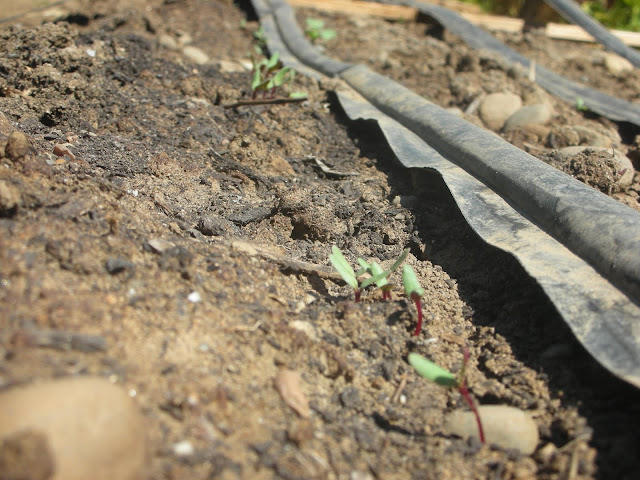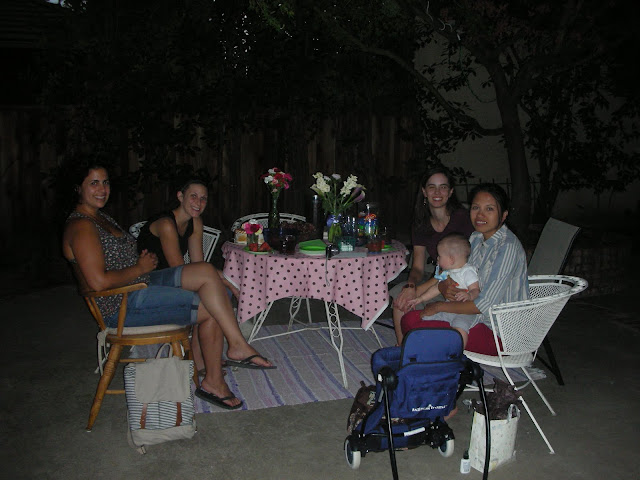Today is Labor Day. I have been asking people all week what that means, exactly, and no one I asked knew the significance, so I was happy to see an article in the paper this morning about the significance of Labor Day. Trade unions played an important role in establishing the United States as a country with one of the economically strongest middle working classes in the world. They fought for higher salaries for workers, and for luxuries that had before then been out of reach of working class families, like retirement benefits. The idea back then was that trade unions strengthened the workers, and in so doing, strengthened the entire nation. Labor Day is a celebration of working people and their rights and contributions to the country.
Today only 7% of workers are members of unions, mainly due to the pressure exerted by large corporations on their employees. With salaries being cut and people losing their jobs and houses all around me, it is hard to want to celebrate labor. Unemployment here in California is second highest in the country. Morale is at an all time low. It seems almost ridiculous to be celebrating a day that symbolized the economic power of the middle class when the middle class is struggling so deeply.
Looking around me at all the suffering that is happening in my community makes me think that there must be a reason for all of this. Suffering cannot be without purpose. The Baha'i writings have a good deal to say about tough times. One of my favourite quotes about suffering says:
"The more difficulties one sees in the world the more perfect one becomes. The more you plow and dig the ground the more fertile it becomes. The more you cut the branches of a tree the higher and stronger it grows. The more you put the gold in the fire, the purer it becomes. The more you sharpen steel by grinding it the better it cuts. Therefore, the more sorrows one sees the more perfect one becomes. That is why, in all times, the Prophets of God have had tribulations and difficulties to withstand. The more often the captain of a ship is in a tempest and difficult sailing the greater his knowledge becomes. Therefore I am happy that you have had many sorrows. Strange it is that I love you and still I am happy that you have had sorrows." -Abdu'l-Baha
This quote is extremely profound to me. I spent my entire weekend at a workshop on Unity. It was a workshop run by Erica Toussaint, who is a member of the National Spiritual Assembly of the Baha'is of the United States, the national administrative body of the Baha'i community here in the US. Erica has been offering this workshop since the early 1990s, and has been finding it transformational in communities all over the country. The workshop was attended by an assortment of people from a variety of racial and cultural backgrounds, and economic classes. I had been excited when I arrived at the workshop to have an entire weekend to study what the Baha'i writings, a religion that holds as one of its main tenets the unity of the entire human race, had to say about practical things that I could do in my life to contribute to unity of my family and community.
Erica handed out packets with pages of quotes on different subjects that all relate to unity. One was about tests and difficulties and their purpose (the quote above was from this handout); another was on the importance and characteristics of consultation, and yet another was about the destructive power of backbiting and criticism, and how we should focus our attention to improving ourselves instead of criticizing others. I was really excited to get started. We began reading a quote, but almost immediately upon finishing it, someone in the group raised their hand with a question. When they were done, and Erica had answered, I noticed another hand go up, and then another. For the next half an hour people shared stories of sorrows and hardships in their lives, and their own personal experiences that related to this quote. I felt my stomach tighten. There were a lot of quotes, and the quotes contained so much wisdom. We were, in my opinion, wasting precious time listening to story after story of hardship, division, hatred, anger, violence, pain and fear when we could have been immersing ourselves in inspiring and empowering quotes that would tell us how to turn all this negativity into positive change. This pattern continued throughout the day, and at one point I got so frustrated that i had to get up and go outside. I recognized that it was quite clear that the majority of the people in the workshop needed to share their personal stories, and that I was in the minority, but I did not want to have to sit through all of the stories.
When I returned about 15 minutes later, Erica was talking about withdrawing. She was not speaking directly to me, but I felt as though she was. She spoke about the fact that withdrawal was a divisive action, and that only by staying present with each other, speaking with love and respect and compassion, and not taking offense, could we hope to accomplish unity in our communities and relationships. Realizing that walking out as I had was a very clear withdrawal from the group, I promised myself that I would not leave the hall again during our sessions, no matter what was happening around me.
The second day was a little bit easier. There were more quotes, and fewer stories, but still far too many for my taste. I felt uncomfortable, and because I had promised myself to stay put, I felt fidgety. When one person started up on another story, I pulled a book from my bag and started to open it, thinking to myself that I would close it again when he was done -- when we got back to the writings we were studying. But as soon as I started to open it I realized that opening the book, closing my eyes, writing a poem and drawing in the margins of my page were all just alternative forms of withdrawing.
The quotes on the handouts from this weekend were wonderful. And since we only got through a few of them, I now have plenty of material to study in the morning after I pray to help me focus my day on positive action and words. But I think the most important lesson I learned this weekend was that everyone else in that hall knew something about unity that I have yet to learn -- that it starts with a willingness to remain present no matter what is going on inside your head or heart and no matter what people around you are doing or saying. The actions and virtues described in the passages on our handouts were extremely practical and helpful. But they are meaningless in isolation. It is easy to be patient when I am alone, just as it is easy to think of myself as someone who is polite, respectful and detached when I am in a room alone. Unity is not just an abstract idea. It is something that has to be practiced, and it has to be practiced in relationship with other human beings. The quotes may well have had more wisdom in them than the stories that were being shared, but by not wanting to listen to people's stories, I was creating the very division that the workshop on unity was seeking to eliminate.
This may seem like an odd Gratitude Monday post, but gratitude is what I felt when I was driving home last night on the highway with two lanes of fast moving vehicles rushing past on both sides of me. I felt gratitude for all the struggle I have experienced and continue to experience this year because this weekend made me realize that all this struggle and pain are helping me to identify parts of myself that are no longer serving me or my life. Parts of myself that undermine unity and relationships. When I look around me, I realize that the world needs people who can learn to rise above their own limitations to serve humanity. Rising above my limitations is hard when I do not know what they are, but this workshop highlighted a good number of them exceptionally well, and while I know it is going to be a hell of a lot of work to change my own patterns of behaviour, I am excited to have been given the opportunity to clearly identify things that need changing, and to start taking conscious, daily steps in the right direction.
Maybe that is what these tough times in the economy are all about too -- identifying weaknesses that need to be strengthened, or systems that are not working that need to be removed and replaced by something more effective for the needs of modern day society.
Have you stopped and thought about what you are grateful for today?

















































